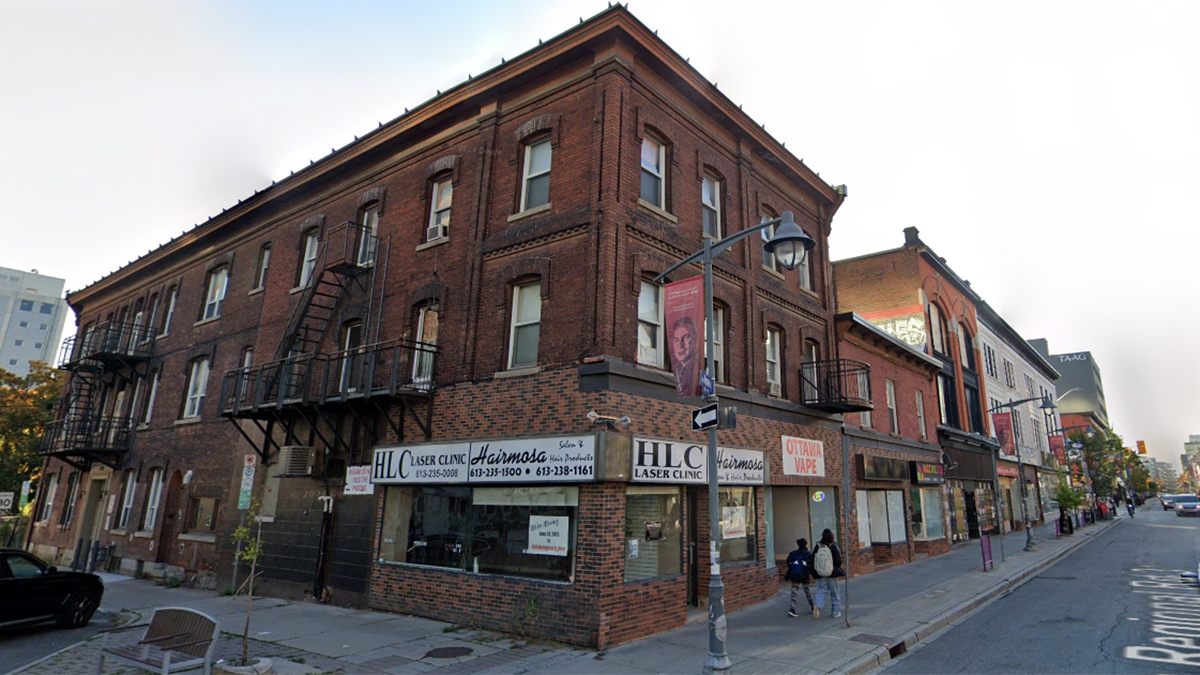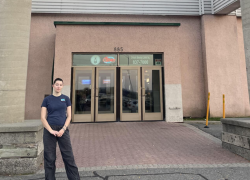Ottawa City Council has delayed a decision on a proposed development at 219-223 Bank St. and 178 Nepean St., requesting that the developer, Smart Living Properties, address concerns about the displacement of tenants.
The council called for a “right to return” agreement, ensuring tenants would be allowed to return to the new units at below-market rates.
The issue was raised during the Dec. 4 planning committee meeting, when more than 20 delegates, including tenants, housing advocates and experts, spoke out in opposition to the project.
The developers sought approval to bypass certain zoning laws to proceed with demolition and new construction, but the proposal has faced intense criticism from the community, particularly from the 11 remaining tenants who would be displaced.
Ben Edmon, who has been living at 227 Bank St. for six years, said he was “disgusted” at the lack of consideration for how this project will affect tenants.
“The apartment that I have, along with (those of) many of my neighbours, is affordable,” he said. “We built a beautiful community.”
Edmon pays $750 a month for his two-bedroom. The average two-bedroom rents for just more than $2,500 a month in Ottawa, according to a November Rentals.ca report.
Concerns Over “Demoviction”
The demolition of the building has been contentious since tenants first received notices known as N13s two years ago.
“Demovictions” are evictions caused by demolition. Many tenants and advocates say this practice disproportionately affects low-income renters by displacing them from affordable housing.
Smart Living Properties has offered the tenants a relocation package, including two years of rent (or $20,000), along with $500 for moving expenses.
Tenants say the compensation would not cover the cost of finding a similar unit in the current rental market. For an “average” two-bedroom apartment in Ottawa at current rents, $20,000 would pay for just eight months of rent.
Many also said the emotional and social ties they have developed in their homes and communities cannot be replaced by money alone.
The development plan would see the construction of a midrise building with mostly bachelor apartments roughly 250 square feet in area.
Motion for “Right to Return”
Somerset Ward Coun. Ariel Troster expressed frustration with the developer’s response to the situation. She, along with Orléans West-Innes Coun. Laura Dudas and River Ward Coun. Riley Brockington, asked the developer’s representatives why right to return had not been considered.
Ryan Denyer, one of the developer representatives, said this option was “not financially viable” for the company. He also argued that they had attempted a “kind and collaborative approach” with the tenants, including financial compensation and assistance in finding new homes, but that they would not accept their offers.
The developer’s representatives said they needed to consult with Smart Living’s leadership before offering a response, adding that they had not been made aware of this request in advance.
Troster, visibly frustrated, countered that her office had been advocating for a solution of this kind for more than two years. She had also added that the $20,000 package was not from their own initiative, instead being the results of her meetings with the company.
Throughout the meeting, councillors reiterated that their role was to evaluate the technical aspects of the zoning application, not the moral implications of the project.
But many delegates argued that approving the project without addressing the displacement concerns would effectively force low-income residents onto the streets. This seemed to resonate with councillors, who pushed back against the Smart Living Properties during questioning.
Troster and Dudas said they would not support the project without further changes. Other councillors voiced concerns about moving forward with a project that could result in the displacement of vulnerable tenants.
When it became clear that the vote would be close, Troster proposed adjourning the decision to the Dec. 11 meeting. This would give the developer additional time to consult with tenants and consider options that could address their concerns, including the possibility of a “right to return” agreement.
“Come up with a better offer,” said Troster to the representatives before her motion. “Consider the right of return for these tenants. … The reputational damage you will face in not making this offer is far greater than it would cost to just do the right thing for these tenants.”




